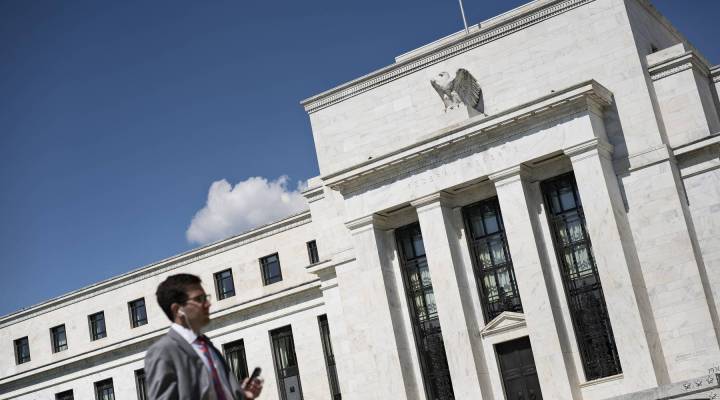
Central banks and avoiding the next financial collapse
Central banks and avoiding the next financial collapse

The Marriner S. Eccles Building on Constitution Avenue in Washington, the headquarters of the Federal Reserve, is busy today.
Chair Janet Yellen is in the middle of a two-day meeting and the Fed will give a statement tomorrow once they have wrapped things up. Mohammed El-Erian will be paying close attention to what their statement says about the economy now. He’s a chief economic adviser at Allianz, which owns PIMCO, the giant bond fund which he used to run. El-Erian is also the author of “The Only Game in Town,” a new book out about central banks, the position they find themselves in now and where things might go from here.
On central banking being “the only game in town”:
They were forced to carry almost the entirety of the policy burden since the global financial crisis. The problem with that is that they have imperfect tools so the best they can do is buy time, buy time for our politicians to step up to the plate and to enable other agencies to deal with the problem at hand. Unfortunately, the political system hasn’t responded so that the central banks are now carrying too much of the burden and at a certain point, they risk going from being part of the solution to part of the problem and that is a major threat for the global economy.
On fiscal policy makers and legislatures doing their part:
First, we need a wakeup call. Part of the reason I wrote this book was because I felt there was a need for a massive wake-up call … remember, when they went unconventional for economic reasons as opposed for market normalization reasons in 2010, Chairman Bernanke said, it’s about ‘benefits, costs and risks,’ and the longer you persist in this world, the greater the threat that the benefits go down and the costs and risks go up. It’s about collateral damage. We are at that point right now. The benefits are small but the collateral damage is getting bigger.
On what Janet Yellin is thinking in five words or less:
Cloudy outlook, data dependent policy
Produced by Mukta Mohan
There’s a lot happening in the world. Through it all, Marketplace is here for you.
You rely on Marketplace to break down the world’s events and tell you how it affects you in a fact-based, approachable way. We rely on your financial support to keep making that possible.
Your donation today powers the independent journalism that you rely on. For just $5/month, you can help sustain Marketplace so we can keep reporting on the things that matter to you.


















